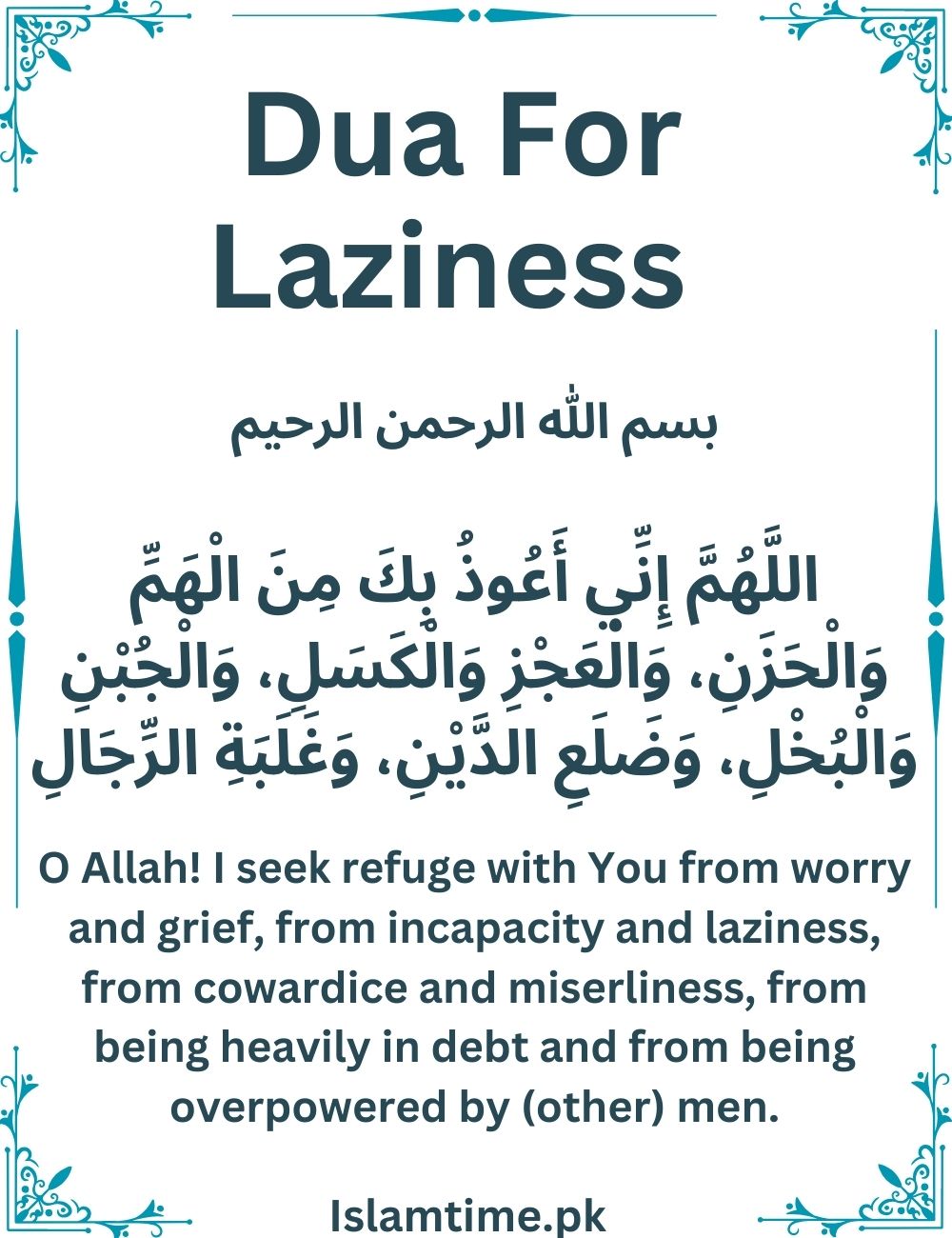
In the face of life’s challenges, Muslims often turn to the Quran and Sunnah for guidance and comfort. One such powerful supplication (dua) that provides refuge from a multitude of struggles is the Dua for Relief from Distress, Laziness, and Debts.
This dua, narrated in Sahih al-Bukhari, is a direct request to Allah (SWT) for protection from the trials and tribulations that can weigh heavily on the believer’s heart and soul. Let’s explore the meaning and significance of this profound supplication.
In Arabic:
اللَّهُمَّ إِنِّي أَعُوذُ بِكَ مِنَ الْهَمِّ وَالْحَزَنِ، وَالْعَجْزِ وَالْكَسَلِ، وَالْجُبْنِ وَالْبُخْلِ، وَضَلَعِ الدَّيْنِ، وَغَلَبَةِ الرِّجَالِ
In Urdu
Allahumma inni a'oozu bika minal-hammi wal-hazani, wal-'ajzi wal-kasali, wal-jubni wal-bukhli, wa da-la'id-dayni, wa ghalabatir-rijaal.
In English:
O Allah! I seek refuge with You from worry and grief, from incapacity and laziness, from cowardice and miserliness, from being heavily in debt and from being overpowered by (other) men.
Understanding the Dua:
This comprehensive supplication covers a range of challenges that a believer may face in their daily life. Let’s break down the different aspects it addresses:
- Worry and Grief: The first part of the dua seeks refuge in Allah (SWT) from the burden of worry and grief. These emotional states can weigh heavily on the heart and soul, hindering one’s ability to focus on their spiritual obligations.
- Incapacity and Laziness: The second part of the dua asks for protection from incapacity and laziness. These qualities can prevent a person from fulfilling their duties and pursuing beneficial actions.
- Cowardice and Miserliness: The third part of the dua seeks refuge from cowardice and miserliness. Cowardice can hinder one’s resolve to stand firm in their faith, while miserliness can lead to a lack of generosity and compassion.
- Debt and Oppression: The final part of the dua requests protection from the burden of debt and the feeling of being overpowered by others. Financial difficulties and the sense of being controlled by external forces can be immensely challenging.
The Power of this Dua:
This comprehensive dua is a testament to the wisdom and guidance provided in the Islamic tradition. By recognizing the various challenges that a believer may face and seeking refuge in Allah (SWT), this supplication demonstrates the holistic approach of Islam in addressing the needs of the individual.
When recited with sincerity and conviction, this dua can serve as a powerful tool for obtaining relief, strength, and guidance from the Almighty. It reminds us to put our trust in Allah (SWT) and seek His assistance in overcoming the difficulties we encounter in our lives.
Q1. How often should I recite this dua?
A: There is no specific frequency for reciting this dua. However, it is recommended to recite it whenever you are facing any of the challenges mentioned in the supplication, or as a regular part of your daily dhikr (remembrance of Allah)
Q2. Can this dua be used for specific situations?
A: Absolutely. While the dua covers a broad range of challenges, you can also tailor it to your specific situation. For example, if you are struggling with debt, you can focus on the part of the dua that seeks refuge from “being heavily in debt.”
Q3. What are the benefits of regularly reciting this dua?
A: Regularly reciting this dua can bring about several blessings and benefits, such as:
Seeking Allah’s (SWT) protection and guidance in times of distress
Developing a stronger reliance on Allah (SWT) and a deeper connection with Him
Cultivating patience, perseverance, and a positive mindset in the face of adversity
Increased spiritual strength and resilience to overcome life’s challenges